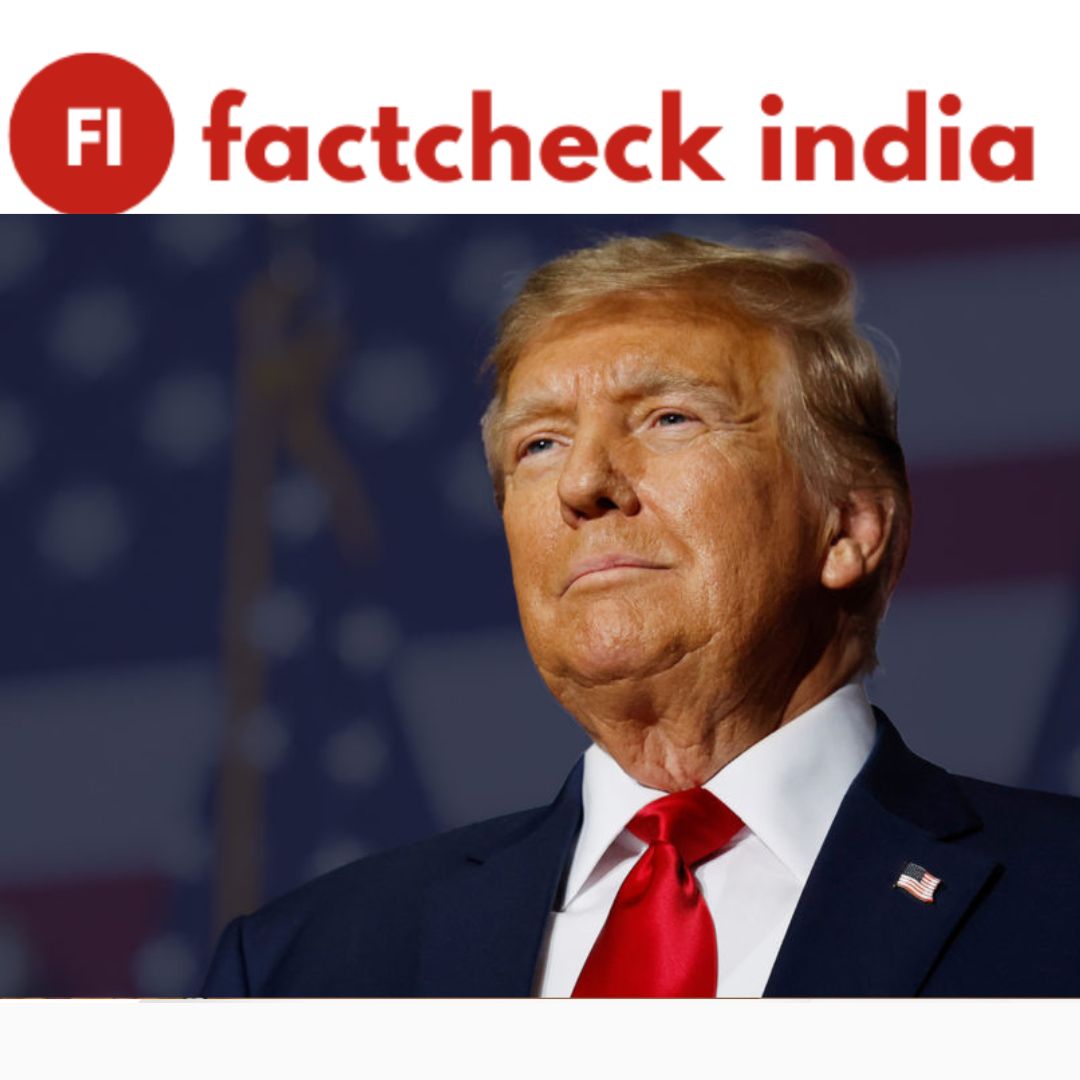Claim
U.S. Vice President JD Vance recently claimed in a televised interview that World War II ended through negotiation, defending President Donald Trump’s diplomatic approach to Russia’s ongoing war in Ukraine.
Verdict: False
World War II did not end through negotiation. It ended with Germany and Japan’s unconditional surrender in 1945 — a historical fact well-documented by historians worldwide.
What Factcheck India Found?
Vice President JD Vance sparked controversy after stating during a recent interview that World War II “ended through negotiation.” The remark triggered widespread backlash on social media, with critics accusing the Trump administration of distorting historical facts to fit its political narrative.
One viral post from the account “Republicans Against Trump” on X (formerly Twitter) called out the statement, clarifying:
“World War II ended with Germany and Japan’s unconditional surrender, not negotiation.”
Historical Reality
- On May 8, 1945, Nazi Germany surrendered unconditionally following Adolf Hitler’s death.
- In August 1945, Japan surrendered after the United States dropped atomic bombs on Hiroshima and Nagasaki.
- No diplomatic negotiation ended the war; the Allied powers demanded total surrender.
This is the latest example where statements from the Trump administration — or its top officials — have faced scrutiny for historical inaccuracies.
Trump’s History of Distorted Claims
This is not the first time the Trump administration has been accused of rewriting history. FactCheck India reviewed some of the most controversial statements and policy moves linked to President Trump and his team.
1. Misleading Claims About Tariffs and the Great Depression
In a July 2025 cabinet meeting, President Trump stated that the Great Depression “would have never happened” if the U.S. had maintained strong tariffs. He also claimed tariffs were only revived after the Depression.
Fact Check:
- The Great Depression began in 1929 and lasted about a decade.
- The Smoot-Hawley Tariff Act of 1930 — intended to protect American businesses — actually worsened the crisis, triggering retaliatory tariffs from over 20 countries.
- The Fordney-McCumber Tariff Act of 1922 had already imposed high tariffs well before the Depression began.
In reality, economists widely agree that aggressive tariff policies during the early 20th century deepened the economic collapse, contradicting Trump’s claims.
2. Trump’s Shifting Stance on the Iraq War
President Trump has repeatedly claimed that he opposed the U.S. invasion of Iraq in 2003, stating in June 2025:
“I was very much opposed to Iraq. I said it loud and clear: Don’t go in, don’t go in.”
What Fact Check India Found Further:
- Recordings from 2002, particularly an interview on The Howard Stern Show, show Trump expressing support for the invasion.
- By the time the war began in March 2003, Trump changed his stance and opposed it.
- Independent fact-checks, including timelines from multiple U.S. media outlets, highlight inconsistencies in his claims.
3. Rewriting Museum Narratives
One of the most debated policies under Trump involves the administration’s effort to influence museum exhibitions and educational content.
- In 2025, Trump signed an executive order directing the Vice President, who serves on the Smithsonian Board of Regents, to remove what he called “divisive, anti-American ideology” from Smithsonian museums, educational centers, and the National Zoo.
- The Smithsonian — the world’s largest museum complex — receives 62% of its funding from the federal government.
- Museums were instructed to revise exhibits, educational materials, and online content ahead of the U.S.’s 250th anniversary in 2026.
On Truth Social, Trump criticized exhibitions highlighting slavery, racial injustice, immigration, and LGBTQ+ history, calling them “unpatriotic.”
4. The Smithsonian Controversy
The administration’s intervention sparked major pushback from the cultural and academic community:
- Over 150 cultural organizations and 300 prominent individuals signed a public statement defending artistic freedom and opposing political interference.
- While the statement did not directly name Trump, it referred to rising concerns about government influence at institutions like the Smithsonian and Kennedy Center.
Why This Matters
Rewriting historical narratives is not just about facts — it impacts education, national identity, and public perception. Critics argue that attempts to reshape U.S. history could set a dangerous precedent, especially when political agendas override academic independence.
At a time when global conflicts like the Russia-Ukraine war dominate headlines, maintaining historical accuracy is critical for policy credibility and public trust.
FactCheck India’s Conclusion
- JD Vance’s statement that World War II ended through negotiation is factually incorrect.
- President Trump’s historical claims — on tariffs, Iraq, and museum narratives — often contradict established evidence.
- The administration’s growing influence over cultural institutions like the Smithsonian has sparked national debate on academic freedom and political interference.
History is not negotiable. Facts matter. And attempts to rewrite them must be scrutinized and especially when they shape the way future generations learn about America’s past.

